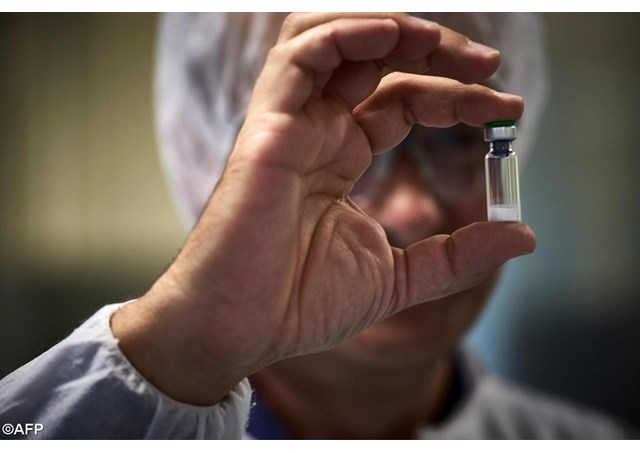
Zika vaccine: France's Sanofi and U.S. Army join forces

(VATICAN RADIO) French drug company Sanofi said on Wednesday it had struck a research deal with the U.S. Army to speed up the development of a vaccine against the mosquito-borne Zika virus.
Sanofi is the only major drug company working on a vaccine against Zika, which has been linked to birth defects and neurological disorders.
Katie Ascough spoke with John Heinrichs, Associate Vice President at Sanofi Pasteur, to get the latest details on the development of this important new vaccine.
“The Zika virus…was identified in 1947 in Africa and for many decades circulated throughout Africa causing only very mild disease. But in the last several years the virus [has] spread out of Africa…”
When asked why Zika has only recently been such a widespread problem, Dr. Heinrichs admitted: “We really don’t know is the short answer to that.” He then explained how industrialisation in regions of Africa has led to a closer proximity of humans with the traditional host of the Zika virus, a type of monkey, and how that may have led to the Zika epidemic.
As for prevention of infection and spreading of Zika, Dr. Heinrichs logically recommends avoiding the mosquito bite in the first place. Recommended are long-sleeve clothing and insect repellent.
Concerning the progress of Sanofi in finding a vaccine for Zika, Dr. Heinrichs says: “We believe that the first vaccines…will enter into clinical studies toward the later part of this year…and we expect to see some early results from those trials very early in 2017 but…it will be some time before we have a vaccine that has demonstrated efficacy and is actually rolled out and available to the population that needs it in those regions.”
Commenting on what can be hoped for from the recent research and development agreement of Sanofi Pasteur with the U.S. Army, Dr. Heinrichs said: “We entered into this partnership because we believe that their vaccine is a very rapid approach [and has worked in the past]…We bring into that collaboration the ability to manufacture the vaccine in scale and a lot of expertise in developing vaccines and formulation and delivery of those vaccines. So because of that partnership we’re very able to quickly respond and to bring that vaccine into larger clinical studies…
Because we have licensed recently a Dengue vaccine in the same regions of the world where Zika is causing epidemic currently, we have the connections, the clinical experience, [and] access to the ministries of health in countries such as Brazil.”
Responding to a question about how Zika may affect the 2016 Olympic Games in Rio, Dr. Heinrichs replied: “Clearly it’s a concern in Brazil and everyone has to make that decision based on their own status in life and how they perceive the risk. How it will affect the Olympics is really beyond my expertise.”
With the increasing hype around antibiotic resistance and the emergence of an E.Coli superbug in the U.S., Katie asked Dr. Heinrichs if viral resistance to vaccines was something to be worried about. Dr Heinrichs reassured: “Currently, there only appears to be a single serotype of Zika virus. That means that a vaccine developed for Zika should be able to neutralize or protect against all the strains that are circulating." If this proves true, Zika should be nowhere as difficult to treat as, for example, the rapidly mutating HIV virus. Neither should hype nor resistance be an issue.”
To conclude the interview, Dr. Heinrichs stated: “I’m very optimistic that a vaccine developed for Zika will be highly effective and will be able to protect throughout the world.”
| All the contents on this site are copyrighted ©. |


